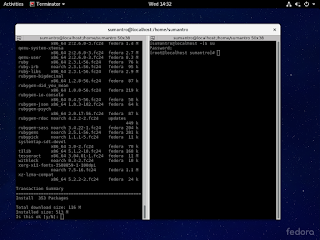Woman in Tech [Fedora Campus Presence]

Today, we kicked off an initiative for engaging more woman contributors. Kanika Murarka , who joined Red Hat as Fedora QA Intern helped me organize this hangout call. The purpose was to bring in more woman contributors and help them be industry ready. As the buzzwords in the industry boom , these meetups are focused to generate the awareness in the first few rounds and then address the fields like IoT , ML, Mobile App Dev to mention a few. All of these are done keeping in mind , that we use the bleeding edge open sourced linux based Fedora , which is also the bleeding edge for RHEL . In the first few mins, we discussed about the FOSS and the participants exposure with the industry. After a bit in-depth discussion , it was figured out that less or almost zero guidance is one of the major barrier when the participants wanted to contribute to any FOSS project.Also, lack of on-boarding guides are also one major barrier for not being able to contribute to FOSS projects which participants a...





